
Ajay Banga
PRESIDENT
WORLD BANK
AJAY BANGA DIDN'T LIKE THE EXISTING DECOR, SO when he took over as World Bank president he gave his grand two-story corner office a makeover. Old-school leather furniture? Gone. Dark lighting that made the space feel like a dungeon? Replaced. And a depressing painting? Swapped out for three framed motivational quotes: "Question everything always," "Done is better than perfect," and "Fail harder." "They are kind of my philosophy of working," he tells me only moments after my walking in the door. My conversation with Banga at the World Bank's Washington, D.C., headquarters dug into the wonkiest details of climate finance, from the role portfolio guarantees can play in reducing credit risk to the investment challenges posed by volatile currencies in emerging markets. But his quick office tour offered just as much insight about his approach to running the world's most important development bank: seemingly small tweaks can make a huge difference.
Banga entered office in 2023 after his controversial predecessor, David Malpass, was forced to resign following controversial remarks that seemed to doubt the science of climate change. Many environmentalists called for a full-scale revamp of the 80-year-old World Bank and other international financial institutions. The bank's most powerful members-including and especially the U.S.-have also pushed for a greater focus on climate while stopping short of endorsing some of the boldest efforts to remake the institution. Banga has approached the task judiciously.
This story is from the November 25, 2024 edition of Time.
Start your 7-day Magzter GOLD free trial to access thousands of curated premium stories, and 9,000+ magazines and newspapers.
Already a subscriber ? Sign In
This story is from the November 25, 2024 edition of Time.
Start your 7-day Magzter GOLD free trial to access thousands of curated premium stories, and 9,000+ magazines and newspapers.
Already a subscriber? Sign In
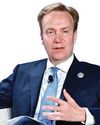
Q & A: Borge Brende
The World Economic Forum president talks with TIME editor Sam Jacobs

Q & A - Rene Haas
Arm's CEO on how his hardware is supporting the Fourth Industrial Revolution

The conflicts looming over 2025
WHEN DONALD TRUMP TOOK THE OATH OF OFFICE AS President in January 2017, his first foreign policy priority was to get tough on China. The Trump 2.0 Administration will continue that work. But when he strides back into the Oval Office in January 2025, Trump will also become responsible for U.S. management of two dangerous wars, the kinds of hot foreign policy crises he was fortunate to avoid during his first term.
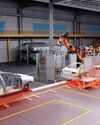
Rev Lebaredian
Nvidia's vice president of Omniverse and simulation technology on training AI-powered robots

5 predictions for AI in 2025
New uses and policy questions come into focus
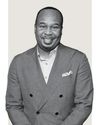
Roy Wood Jr. The comedian on his new stand-up special, the importance of working in food service, and learning from Keanu Reeves
8 QUESTIONS WITH Roy Wood Jr.
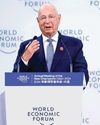
A call for global cooperation in the Intelligent Age
Cultivate wisdom along with innovation
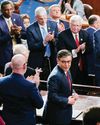
The D.C. Brief
IN THE END, THE THREAT OF A FARright revolt proved more menacing than most imagined, as Republican Mike Johnson initially came up short on Jan. 3 during the first balloting to keep him as Speaker.

The digital labor revolution
OVER THE PAST TWO YEARS, WE'VE WITNESSED advances in AI that have captured our imaginations with unprecedented capabilities in language and ingenuity. And yet, as impressive as these developments have been, they're only the opening act. We are now entering a new era of autonomous AI agents that take action on their own and augment the work of humans. This isn't just an evolution of technology. It's a revolution that will fundamentally redefine how humans work, live, and connect with one another from this point forward.

Tech we can trust
Serving humanity's best interests must be at the center of progress